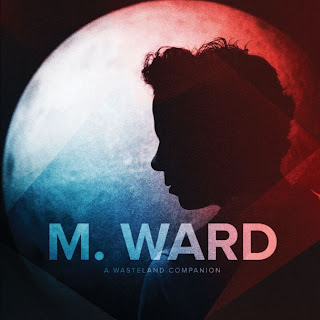A Few of Hype Starts Here's Favorite Flicks of the Last Couple Years Edition
After watching 2006's romantic dramedy Stranger Than Fiction, one could be forgiven for expecting Will Ferrell's career to take a slightly different path. Straight-faced, wounded, and wholly believable, it seemed to mark a Jim Carrey-esque change in focus for the comedian. Then came Blades of Glory, then Semi-Pro, then Step Brothers, then Land of the Lost, then... you get the idea. I'm not the only one I've heard complaining about Ferrell's reluctance to return to the dramatic side of things, but I am among the very few who's actually seen it again in last year's woefully under-appreciated Everything Must Go. Ferrell stars as Nick Halsey, a successful career man plagued with alcoholism who, on one fateful day, loses his job, wife, car, and access to his home. Halsey defiantly takes up residence in his front lawn, a move that catches the eye of his new neighbor (Rebecca Hall) and a local youth (Christopher Jordan Wallace, son of the late Notorious B.I.G.). Everything isn't exactly an exciting movie; It lacks the crazed energy of Ferrell's pure comedies, as well as the meta/fantastical bend of Stranger. It's a subtle character study of a man in crisis, one that uses its characters and situations in surprising, fitting ways, and most importantly, it boasts a really great performance from its leading man. Not great as in, 'Good for Farrell doing drama,' but great as in, 'I would have slotted him over half of last year's Best Actor candidates.' Don't believe me? Take a look for yourself.
Melancholia
Everything Must Go is a movie about hardship, and how experiencing it can be a freeing, and eventually gratifying experience. In Melancholia, the world WILL CRUSH YOU... LITERALLY. Lars von Trier's essay on depression and its many angles is a positively stunning, head-spinning testament to the power of cinema, though it might be best reserved for the emotionally stable. Kristen Dunst, in a performance that will completely reconfigure everything you ever thought you knew about Kristen Dunst, plays Justine, a bride who wears a head full of torment. The film opens with her wedding, an event that begins with awkward charm before completely unraveling at the seams. In steps Claire (Charlotte Gainsbourg), Justine's Type-A sister, who cares for her wallowing sibling while her husband (Kiefer Sutherland) becomes fascinated by Melancholia, a newly-discovered planet that might just be on a collision course towards earth. Yes, I know it all sounds crazy, but von Trier somehow finds a way to stitch the whole thing together perfectly, the sci-fi-ish elements never clashing with the film's weighty emotional core, only enhancing them. Much of this is due to the career turn here from Dunst, who won Best Actress at the Cannes Film Festival before the film was snubbed altogether by the Academy. Don't listen to those fogies. Melancholia might not be an easy watch, but it's a towering achievement.
Rare Exports: A Christmas Tale
Yeah, yeah, I know, now's not the season for this one, but when I saw it on the Recently Added list, I just couldn't help myself. This Finnish import is simply one of the wildest, funniest, creepiest, craziest throwbacks of the last several years, and no time of year should be deprived of its cockamamie brilliance. In the snow-covered, facial-hair-shrouded land of Finland, a mining company drills too deep, and accidentally unearths the impossibly evil creature known as... Santa Clause. A young lad from the surrounding area (Onni Tommila) comes to learn that evil is afoot, and when no one will believe him, its up to our pint-sized hero to save the day. Exports isn't the B-Movie throw-away that it sounds like on paper. It tries (and succeeds) to frighten more often than its goofy premise would suggest, and its comedy bits are delivered in a dead pan fashion that is light-years removed from similar sounding American spoofs. In truth, the movie might owe more to 80's Spielberg than silly satire, presenting itself with a straight-face, sending a young protagonist on a perilous, coming-of-age journey. The maniacal plot summary isn't even the draw here, it's just the cherry on top of one delicious Sunday.
















